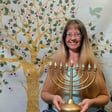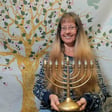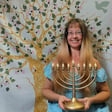
June 20 Daily Reading- Read the Bible in 1 Year
If you would like to download my FREE calendar for keeping track of your commitment to read the Bible every day, you can find that on my site, here: https://www.inthefamilywaycoaching.com/pages/read-the-bible-in-1-year
Monthly memberships to support this event can be purchased on my site, here: https://www.inthefamilywaycoaching.com/offering_packages
Today we will read in 2 Kings Chapter 24:1-7, 2 Chronicles Chapter 36:5-7, and Jeremiah Chapter 35:1-14, 18-19, Chapter 36, and Chapter 45. We will read about the obedience of the family of Recab and review 2 Kings Chapter 10 to understand that the family of Recab has always been faithful to God. In fact, what I forgot to mention in today's video, is that Recab is actually descended from the family of Moses' father-in-law, Jethro! God will contrast the obedience of this family to the nation of Judah, telling Judah to learn from this family's example and obey Him. We will also read about God telling Jeremiah to write down the words He tells Jeremiah to write within a Megillah Scroll and read it to the people and leaders of Judah. When King Jehoiakim hears the words he cuts them off from the scroll and burns them. In our discussion for daily application we will talk about God's design for leadership- to shepherd people, and how the kings of Judah were failing to shepherd God's people. We will talk about our own roles of leadership, whatever they may be, and the importance of leading people to God, wherever we are, by doing the good works He has prepared ahead of time for us to do. We will talk about the big picture of these daily lessons - they are tools in our "belt of truth" that we are to put on daily, bringing forth the lessons we learn as we encounter each good work God has prepared for us to do so that we can do the work God has given us well. If we do not know which tool to use that we have been given, we are encouraged to call upon God's Holy Spirit to teach us which tool we need to use in each particular circumstance we encounter, since the Holy Spirit is our teacher and will remind us of all we have been learning when we need to use what we have learned.
If you enjoyed today's reading and feel like God has lit YOUR light today, please click the LIGHT button (it looks like a thumbs up or a heart) and consider subscribing to or following my channel, if you have not done so already.
If you know someone who might be interested in reading the Bible with me this year please SHARE today's reading with them! It's never too late to join in! Let's help this event grow and together we can spread the word about reading God's Word!



















